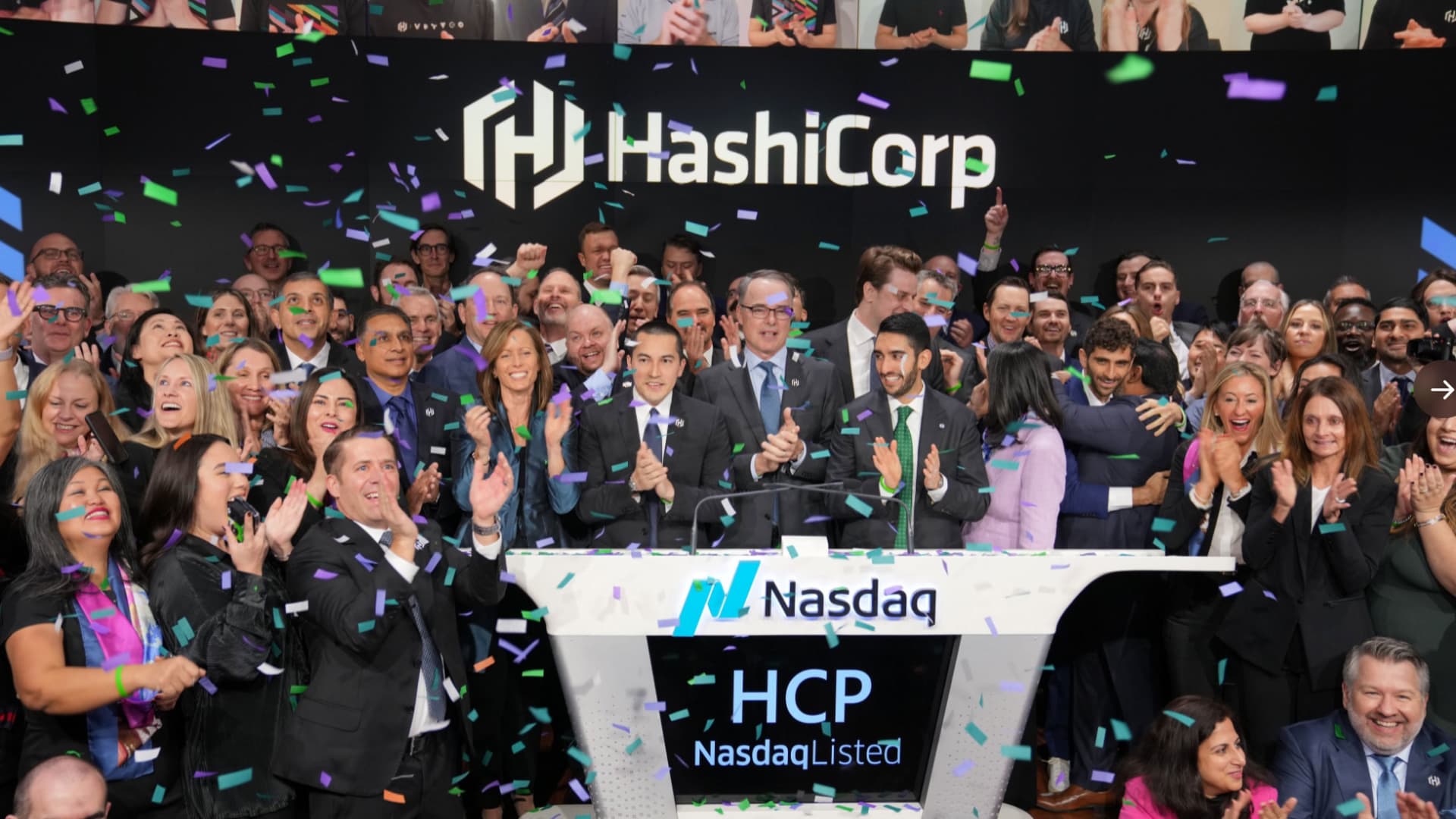HashiCorp shares jumped as much as 26% on Tuesday following a media report claiming IBM was in talks to acquire the cloud software maker.
Developers use HashiCorp’s software to set up and manage infrastructure in public clouds that companies such as Amazon and Microsoft operate. Organizations also pay HashiCorp for managing security credentials.
Citing unnamed sources, The Wall Street Journal said a deal could materialize in the next few days.
HashiCorp and IBM representatives both told CNBC they do not comment on market rumors or speculation.
Founded in 2012, HashiCorp went public on Nasdaq in 2021. The company generated a net loss of nearly $191 million on $583 million in revenue in the fiscal year ending Jan. 31, according to its annual report. In December, Mitchell Hashimoto, co-founder of HashiCorp, whose family name is reflected in the company name, announced that he was leaving.
Revenue jumped almost 23% during that period, compared with 2% for IBM in 2023. IBM executives pointed to a difficult economic climate during a conference call with analysts in January. The hardware, software and consulting provider reports earnings on Wednesday.
Cisco held $9 million in HashiCorp shares at the end of March, according to a regulatory filing. Cisco held early acquisition talks with HashiCorp, according to a 2019 report.
IBM shares slipped after publication of the Wall Street Journal article but quickly recovered.
